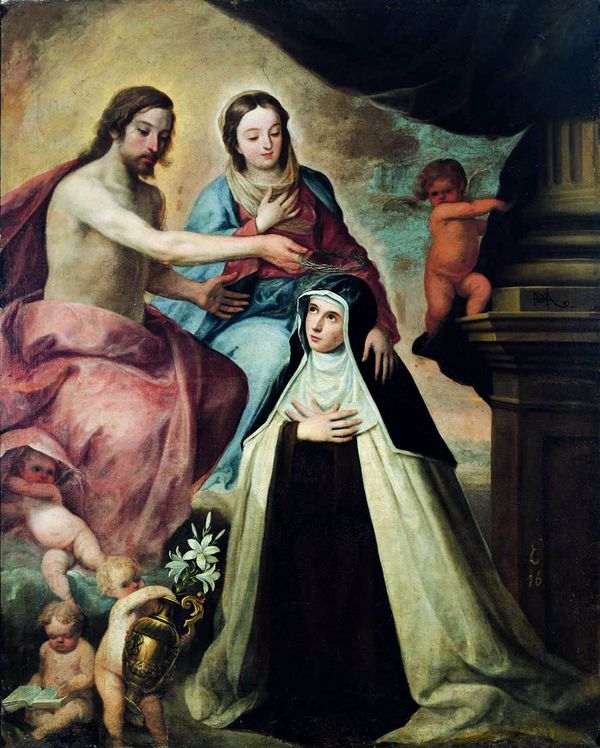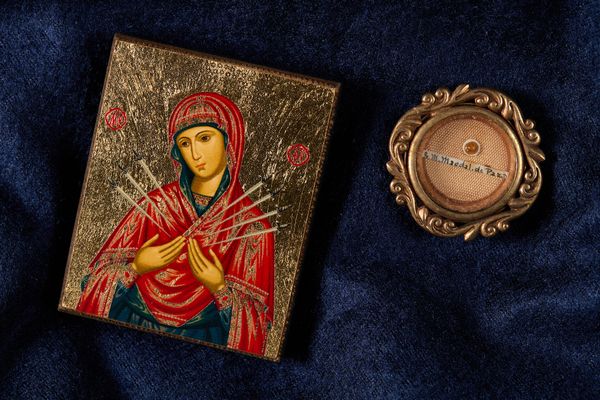Mystical ecstasy is the elevation of the spirit to God in such a way that the person is aware of this union with God while both internal and external senses are detached from the sensible world. Mary Magdalene de’ Pazzi was so generously given this special gift of God that she is called the “ecstatic saint.”
Catherine de’ Pazzi was born into a noble family in Florence in 1566. The normal course would have been for her to have married into wealth and enjoyed comfort, but Catherine chose to follow her own path. At 9, she learned to meditate from the family confessor. She made her first Communion at the then-early age of 10, and made a vow of virginity one month later. At 16, Catherine entered the Carmelite convent in Florence because she could receive Communion daily there.
Catherine had taken the name Mary Magdalene and had been a novice for a year when she became critically ill. Death seemed near, so her superiors let her make her profession of vows in a private ceremony from a cot in the chapel. Immediately after, Mary Magdalene fell into an ecstasy that lasted about two hours. This was repeated after Communion on the following 40 mornings. These ecstasies were rich experiences of union with God and contained marvelous insights into divine truths.
As a safeguard against deception and to preserve the revelations, her confessor asked Mary Magdalene to dictate her experiences to sister secretaries. Over the next six years, five large volumes were filled. The first three books record ecstasies from May of 1584 through Pentecost week the following year. This week was a preparation for a severe five-year trial. The fourth book records that trial and the fifth is a collection of letters concerning reform and renewal. Another book, Admonitions, is a collection of her sayings arising from her experiences in the formation of women religious.
The extraordinary was ordinary for this saint. She read the thoughts of others and predicted future events. During her lifetime, Mary Magdalene appeared to several persons in distant places and cured a number of sick people.
It would be easy to dwell on the ecstasies and pretend that Mary Magdalene only had spiritual highs. This is far from true. It seems that God permitted her this special closeness to prepare her for the five years of desolation that followed when she experienced spiritual dryness. She was plunged into a state of darkness in which she saw nothing but what was horrible in herself and all around her. She had violent temptations and endured great physical suffering. Mary Magdalene de’ Pazzi died in 1607 at age 41, and was canonized in 1669. Her liturgical feast is celebrated on May 25.
Credits:
Discriptions of saints lives and biographies have been excerpted, summarized, or compiled from
Franciscan Media,
CatholicSaints.Info,
Catholic Online, and
Wikipedia.

